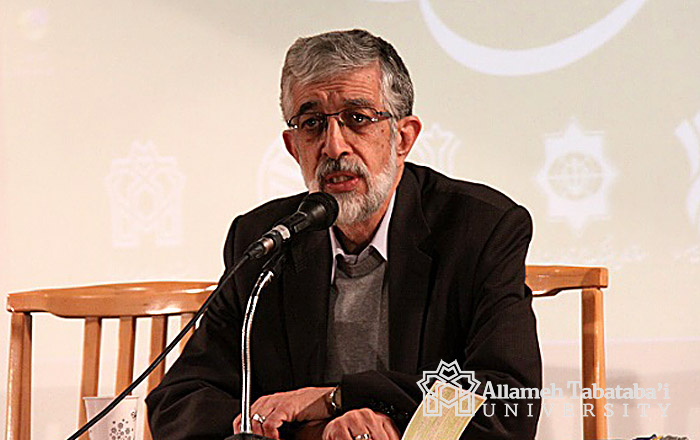Haddad-Adel: Translations of the Quran Should Accompany their Original

The International Conference on Quran Translation opened on December 15th, 2014, with Dr Haddad-Adel’s speech. Gholamali Haddad-Adel, Head of the Academy of Persian Language and Literature, attributed the abundance of Persian translations of the Holy Quran to the Islamic Revolution of Iran, maintaining, “Our Revolution has brought about numerous blessings. However, we are unmindful of them since we have been with them from the beginning. If one outside it tries to compare contemporary Iran with the four-decade-ago Iran, he will certainly recognize the difference.” He then called Quran translation before and after the Islamic Revolution of Iran, respectively static and dynamic, and continued saying: “If you draft a history of Quran translations since 1978, the achievements of these few decades might seem comparable to those of the many centuries before it.”
As a Quran translator, Haddad-Adel maintained that “Islam, as a religion not limited to the Arab world, has all human beings as its subjects. Hence, those who do not know Arabic should be acquainted with the realities of Islam through its translations.” He claimed Persian as the first language into which Quran was rendered.
Regarding the necessity of reading the translations of the Quran, Haddad-Adel said: “Unfortunately, most of our secondary-school graduates do not have a good command of English and Arabic. 95 per cent of our people cannot appreciate the meaning of the Arabic Quran, and I wonder why we do not play the Persian Translation after the Arabic Verses, while they are played at the beginning of the colloquia.” Attributing the just-mentioned problem to the outdated style of the Persian translations of the Quran, Hahhad-Adel said: “On one side, translations of Quran are not written in the contemporary standard Persian; on the other side, translators of Quran, with excessive cares, have used many parentheses, brackets and showed an extreme scrupulosity which has prevented them from preserving a balance between accuracy and readability.”
Reminding the audience that “the discourse of our religious gatherings is not Quranic”, he continued that “if the discourse of our religious groups is turned to a Quranic one, we will go forward. The more we can let Quran enter our groups, the less we will have superstitions since it was Quran which helped the pre-Islamic ignorant society conquer the world in less than a century, and, of course, it can do such a miracle in the present world.”
Elaborating on the importance of meaning in Quran translation, he said, “The rule that I observed in my translation of Quran is that I tried to transfer the exact sense. For me, a successful translation is one which makes sense and is free from the prevalent syntactic and morphological restrictions.” He then added that Quran should not be translated in verse, saying: “Quran has clearly negated the poetic nature of Quran; nor has it been revealed in verse. Hence, we should not translate it into verse. How can one think about pouring Quran in the moulds of rhythm and rime while all prose translators are facing many difficulties in rendering it into prose?!” He then added that he does not believe in the collective translation of the Quran since it is as if a group want to write a poem collaboratively: the result will be weak.
In the end, he concluded his speech as: “the result of all the endeavours in the Howzeh and universities should be one thing: Quran reading should become customary in our country; break the taboo and let the translation of Quran be read along with its Original.


